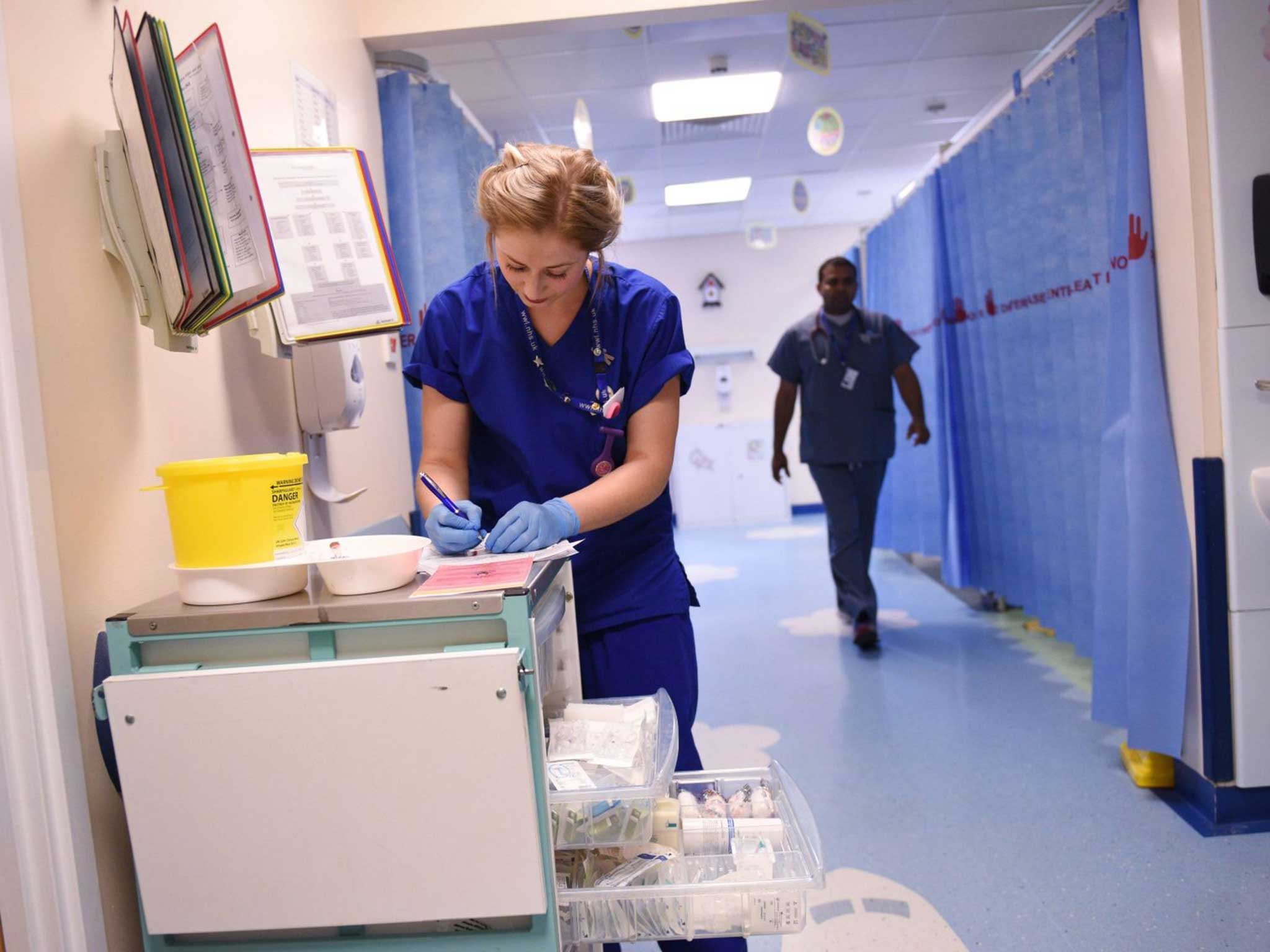The Government promised that mental health services would be equal to the rest of the NHS. So far, it's failed
Spending on mental health has dropped while demand is rising. Minimum waiting time targets won't make any difference if the promise isn't funded

Your support helps us to tell the story
From reproductive rights to climate change to Big Tech, The Independent is on the ground when the story is developing. Whether it's investigating the financials of Elon Musk's pro-Trump PAC or producing our latest documentary, 'The A Word', which shines a light on the American women fighting for reproductive rights, we know how important it is to parse out the facts from the messaging.
At such a critical moment in US history, we need reporters on the ground. Your donation allows us to keep sending journalists to speak to both sides of the story.
The Independent is trusted by Americans across the entire political spectrum. And unlike many other quality news outlets, we choose not to lock Americans out of our reporting and analysis with paywalls. We believe quality journalism should be available to everyone, paid for by those who can afford it.
Your support makes all the difference.It is generally regarded as a bad idea to look a gift horse in the mouth. Sadly, this doesn’t hold true for mental health, where the rhetoric doesn’t always match the reality. Last year’s much-lauded announcement that children’s mental health services would receive an extra £250m a year was a disappointingly familiar reminder of fact. The announcement was warmly welcomed, even when the £250m shrank to £143 million, but the warm welcome turned frosty when the majority of the £143mi went ‘missing’, presumably siphoned off to prop up other NHS services.
When you consider that community mental health services have been cut by at least £85m (and probably much more) since 2010/11 - which would be difficult to manage even if demand was standing still, and almost impossible when for example the number of children being diagnosed with mental illnesses in Accident and Emergency has doubled in the same period of time - you can see why a healthy scepticism is so necessary for people who work in mental health.
And now there is another gift horse that needs a trip to an equine dentist. As the Independent Commission on Acute Adult Psychiatric Care reported earlier this year, the litmus test for whether the government is living up to its oft-proclaimed desire to see parity of esteem and funding between mental and physical health will be if the same level of service is funded for mental health and physical health cases.
Patients accessing physical healthcare have benefited from maximum waiting time targets for many years, and these have been absolutely important in improving patient care. When hospitals don’t treat people in A&E within the four hour maximum waiting time, people pay attention. There were no such standards for mental health services, meaning it was almost inevitable that many of the commissioners who buy healthcare services invested in physical healthcare at the expense of mental healthcare, even though demand for both was rising.
The number of inpatient mental health beds dropped by 39 per cent between 1998 and 2012 (and further since) and the number of people sent out of their local area for a bed when facing a mental health crisis, sometimes moved hundreds of miles away, has more than tripled from 1301 to 4447 between 201/12 and 2014/15.
Adult mental health services have had the same experience as those for children, with the amount spent by mental health trusts falling by 8 per cent since 2010. The effect of cuts has been compounded by an increase in demand. The number of people being treated by services rose by 10 per cent in the one year between 2012/13 and 2013/14 alone, and the number of detentions under the Mental Health Act reached a record high in the same year.
There was broad enthusiasm when both the Coalition Government and NHS England set out a shared ambition for access and waiting time standards to be introduced in mental health by 2020. However, both acknowledged that this would require additional funding to be specifically allocated to implementing such standards by the current government.
Significant extra funding for mental health over the course of the parliament has recently been announced, following the publication of NHS England’s Mental Health Taskforce, which is again to be cautiously welcomed (although, as ever, the devil seems to be hidden in the detail). However, there has been a conspicuous silence on the subject of whether access and waiting times would be fully funded. Norman Lamb’s revelation earlier this week that NHS England told him that these vital standards have no actual funding assigned to them is hugely significant. If it is correct then, barring a miracle, they are simply not going to happen in practice.
This is crushingly disappointing. Giving people with mental health problems the same opportunities to access timely care would have ended years of discrimination and represented a significant step towards realising the government’s stated ambition of achieving parity of esteem for mental health. Instead, as Lamb says, this raises the bleak prospect of the disadvantages suffered by people with mental illness in the health system continuing without an end in sight.
The Government needs to prove him wrong by investing in a comprehensive range of access and waiting time standards and, learning the lesson from the missing mental health funding saga, accepting that this money needs to be ring-fenced otherwise it’ll be diverted elsewhere. The sceptics are watching, but more importantly so are the millions of people in England who have a mental illness, and who frankly should expect nothing less.
Professor Sir Simon Wessely is President of the Royal College of Psychiatrists, and Gregory Smith is a policy analyst at the college
Join our commenting forum
Join thought-provoking conversations, follow other Independent readers and see their replies
Comments